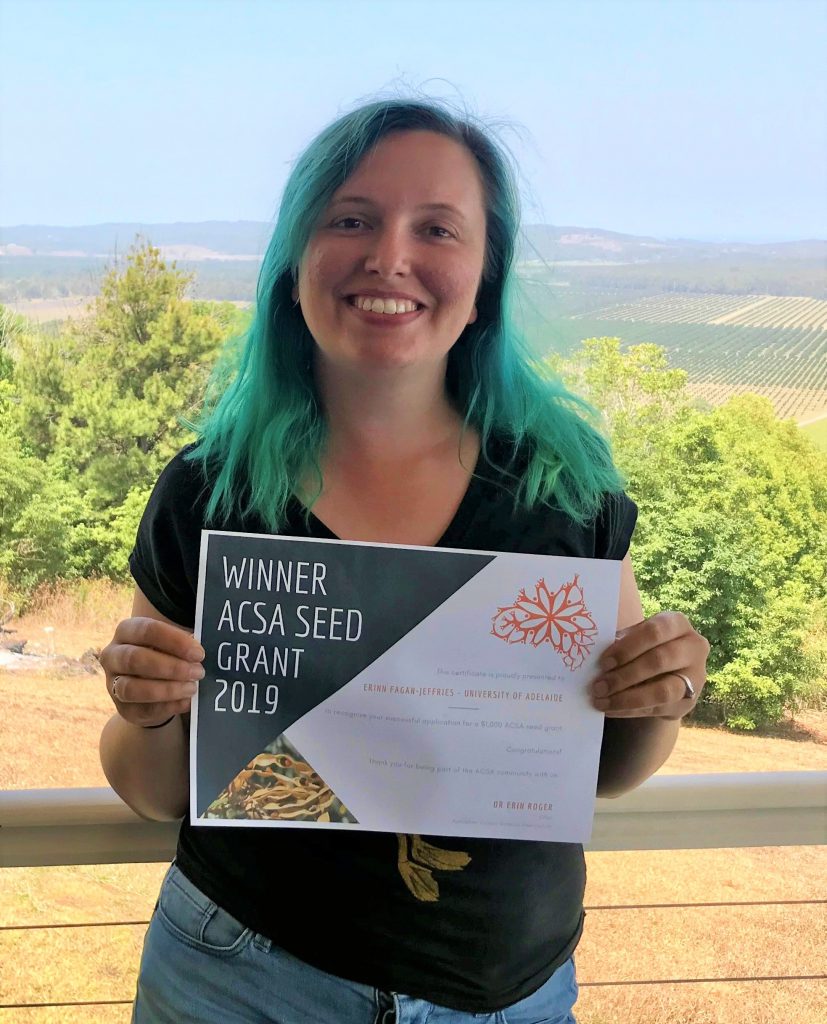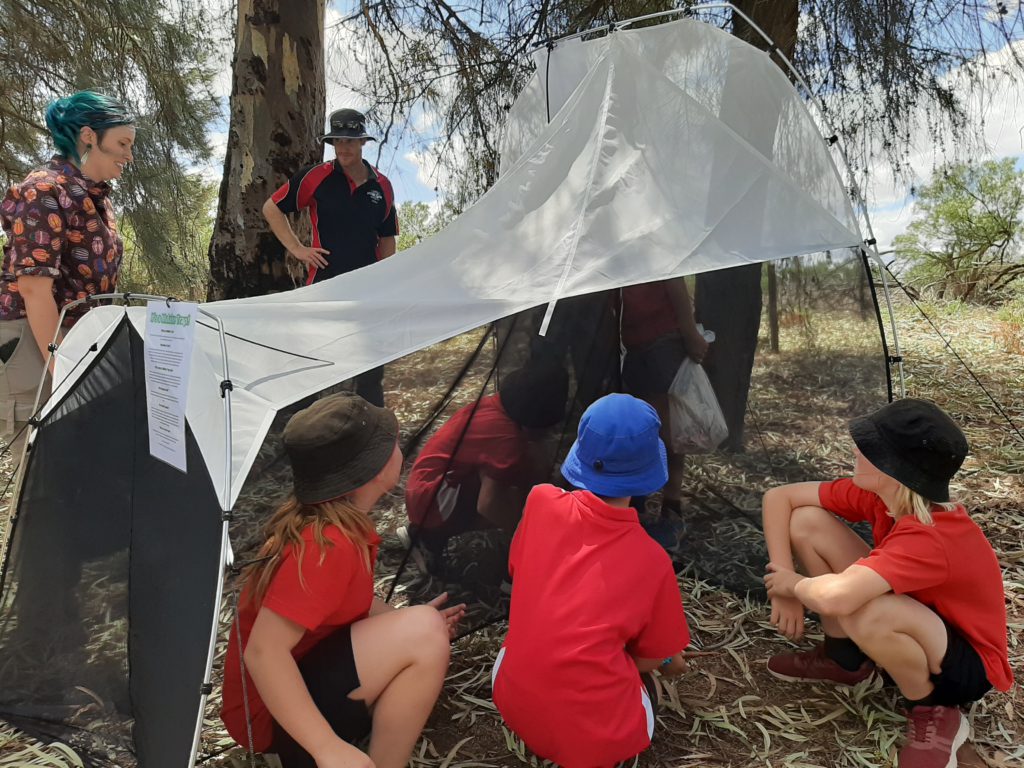By Erin Fagan-Jeffries

My goal is to get the community more involved in the process of how we document and describe our biodiversity – I believe we all should be part of this process to better understand what is living in the environment that we call home.
The seed grant from the Australian Citizen Science Association allowed me to top up the amount available from my broader postdoctoral funding to allow four trials of a citizen science project that connected school groups to the process of species discovery.
So far, trials of a project have been underway at four school across South Australia: Macclesfield Primary School in the Adelaide Hills, Cowell Area School on the Eyre Peninsula, and Waikerie and Ramco Primary Schools in the Riverland. Each school set up and ran a Malaise trap (a tent-like structure that passively collects flying insects like wasps and flies) for several months after an initial workshop – Macclesfield in late 2019, the other schools from February until June 2020. Trap collection bottles were sent by the school to me at the University of Adelaide, where they were sorted into different groups of insects. Updates on the school trap samples are available here for anyone who is interested: http://www.erinnfagan-jeffries.com/news-insect-investigators/.
Whilst all the schools have undoubtedly caught numerous new species, as so many of our insects are yet to be described, the group of wasps that are the focus for this project are the Microgastrinae – small wasps that are parasitoids of caterpillars. All four schools have caught specimens of this group in their trap, and at least three of the four schools have caught specimens of an undescribed species – I’m now working on the publication of these, and about to visit the schools to discuss what they’d like to name their new species!

Dealing with what I do if a school hasn’t caught a new species is a tricky situation – there’s an understandable level of disappointment when other schools have caught new species and they haven’t… so dealing with better managing those expectations at the beginning if the partnerships is something I have learnt that I definitely need to improve. Different perspectives of time spans are also an issue I have become more aware of through the pilot projects – the speed at which school terms fly by, contrasted with the slow speed at which I was able to process samples, conduct lab work and make decisions about the presence of new species sometimes meant that schools were waiting for results and updates longer than desired.
Being able to conduct a small pilot of this project has been a massive help – I’ve discovered some of what worked well, what’s feasible and what needs to change in future iterations – having a completed proof of concept will mean that applying for larger funding will hopefully more successful than it would have been otherwise.
